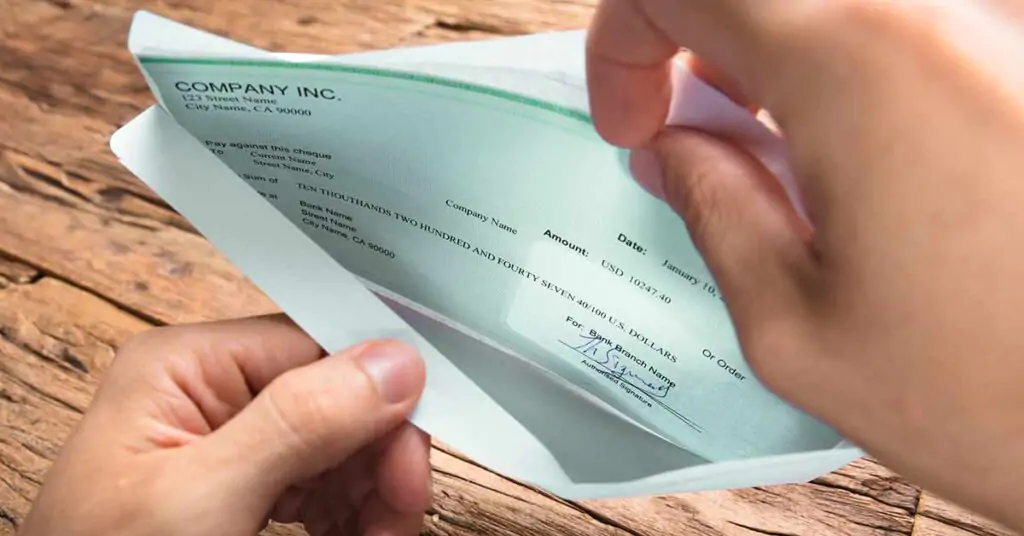What are Certified Funds: A Comprehensive Guide

As someone who has navigated the intricate landscape of finance for many years, I can’t emphasize enough how important it is to understand the concept of certified funds. These funds are like the unsung heroes of financial transactions, ensuring that your money is not only safe but also guaranteed. In this article, I want to take you on a journey through the world of certified funds, shedding light on their significance, various forms, uses, and much more.
Imagine, You’re on the verge of closing a significant deal, perhaps buying your dream home or sealing a business transaction. The last thing you want is for your payment to fall through or face unexpected hurdles. This is where certified funds swoop in as your financial savior. Allow me to guide you through the maze of certified funds, revealing their secrets, and how they can make or break your financial ventures.
Unraveling the Mystery of Certified Funds
What Are Certified Funds Exactly?
Certified funds might sound like a jargon-heavy term, but at its core, it’s remarkably simple. Certified funds are a guarantee – a promise from a financial institution that your money is there, ready to be claimed. They come in various forms, from certified checks to cashier’s checks, money orders, and wire transfers. What unites them is the unwavering assurance that the funds won’t vanish into thin air.
A Closer Look at Different Types
Let’s dive deeper into these forms.
Certified Checks: Imagine your personal check getting a stamp of approval from your bank. That’s a certified check. The bank makes sure you’ve got enough funds, and they set that amount aside for the check’s recipient.
Cashier’s Checks: A notch higher on the security scale, cashier’s checks are directly issued by the bank. They’re like the bank’s way of saying, “Here’s money that’s definitely there.”
Money Orders: For smaller transactions, money orders are like pocket-sized certified funds. They’re prepaid payment slips issued by financial institutions or authorized agencies.
Wire Transfers: The speed demons of certified funds. Wire transfers whisk your money from your bank account to another, especially handy for international transactions.
With these different forms in mind, let’s explore why certified funds are an absolute must in various financial dealings.
The Crucial Role of Certified Funds
Certified funds aren’t just an option; they’re often a requirement. Picture a real estate transaction where the stakes are high, and timing is everything. Using a personal check could lead to complications and delays, not to mention the uncertainty of whether the funds will be there when needed. Certified funds step in to ensure a seamless and secure exchange of money. Here are some scenarios where they shine:
- Real Estate Transactions: Certified funds are the heroes here, covering down payments, closing costs, and earnest money deposits.
- Large Purchases: Buying a car, a piece of jewelry, or any big-ticket item? Sellers often insist on certified funds to safeguard their interests.
- Legal Settlements: In the legal world, certified funds guarantee that settlements and court-ordered payments happen without a hitch.
- International Ventures: When dealing with global transactions, the reliability and efficiency of certified funds, especially wire transfers, are unmatched.
Obtaining Certified Funds: My Personal Approach
The Traditional Route: Visiting the Bank
When I need certified funds, my first stop is the bank. It’s the traditional route, and it still holds its own. Here’s how it usually pans out:
- A visit to my friendly neighborhood bank branch.
- A polite request for the type of certified funds I need – certified check, cashier’s check, or money order.
- I provide the exact amount, plus any associated fees.
- The bank checks my account to ensure I’ve got the necessary funds.
- Once verified, they issue the certified funds in the form I’ve requested.
My Trusted Ally: Certified Checks
Certified checks are a bit of a hidden gem. I write a personal check for the specific amount I need and then take it to my bank. The magic happens here:
- My personal check gets scrutinized.
- The bank ensures I’ve got the funds.
- Once the green light is given, they stamp or mark my check as “certified.” That’s the bank’s way of saying, “This money is as good as gold.”
The Swift Solution: Wire Transfers
For the need for speed, wire transfers are my go-to. Whether I’m dealing with international business or require an immediate transfer, wire transfers are my trusted allies. Here’s how they roll:
- A trip to my bank or a few clicks online to initiate the wire transfer.
- I provide the recipient’s bank details, including account and routing numbers.
- I specify the amount to be transferred, along with any associated fees.
- My bank performs the electronic symphony, whisking my funds to the recipient’s account.
Now that we’ve covered obtaining certified funds, let’s explore where these financial champions shine the brightest.
Where Certified Funds Shine Brightest
Certified funds aren’t your everyday payment method; they’re like the superheroes of secure transactions. Here’s where they steal the spotlight:
- Real Estate Transactions: Certified funds are the stars of the show, ensuring down payments, closing costs, and earnest money deposits are rock-solid.
- Vehicle Purchases: When you’re buying that dream car or any significant vehicle, sellers want to see certified funds to ensure they receive every penny.
- Renting an Apartment: Some landlords play it safe by insisting on certified funds for security deposits and initial rent payments.
- Legal Settlements: In the realm of legal matters, certified funds guarantee that settlements and court-ordered payments are executed flawlessly.
- Business Acquisitions: When businesses change hands, certified funds are the currency of choice for sealing the deal.
- International Ventures: In the global arena, wire transfers and other forms of certified funds reign supreme, ensuring secure cross-border transactions.
Now that we’ve explored where certified funds rule, let’s compare them to other payment methods and see why they stand tall.
Certified Funds vs. Other Payment Methods: My Insights
Certified Funds vs. Personal Checks
Certified funds and personal checks are like night and day when it comes to reliability. Here’s what sets them apart:
Certified Funds:
- Backed by the bank, they’re as solid as a rock.
- Low risk of bouncing – a critical factor for substantial transactions.
- Go-to choice for large deals, especially in real estate.
- Often mandatory for ensuring a smooth real estate transaction.
Personal Checks:
- No guarantees here; they rely on your account balance.
- Riskier, especially when your account doesn’t have enough funds.
- Suitable for everyday, smaller transactions.
- Not the safest option for significant payments.
Certified Funds vs. Cashier’s Checks
Certified funds and cashier’s checks share the same security arena but have their nuances:
Certified Funds:
- Can be personal checks certified by your bank.
- Funds are locked and loaded by the bank, ensuring payment.
- A testament to bank-backed assurance.
Cashier’s Checks:
- The bank’s own creation, directly withdrawn from your account.
- The pinnacle of security and widely accepted in financial circles.
Now, let’s dive into why I’m a firm believer in the power of certified funds and why you should be too.
Why I Always Opt for Certified Funds: The Benefits
Certified funds offer an array of advantages, making them a top choice in financial transactions:
- Security: The bank’s guarantee eliminates the risk of bounced payments or fraudulent transactions.
- Acceptance: Widely accepted across the financial spectrum, making them indispensable in real estate, legal, and high-value transactions.
- Speed: Wire transfers, a form of certified funds, are the speed demons of the financial world, ideal for time-sensitive payments, including international ones.
- Accountability: Certified funds provide an irrefutable record of payment, invaluable for both legal and financial purposes.
- Peace of Mind: Buyers and sellers can sleep soundly knowing that the funds are securely in place, eliminating uncertainty.
With these benefits in mind, let’s navigate the terrain of certified funds, considering some crucial tips and caveats.
Navigating the Terrain of Certified Funds: Tips and Caveats
While certified funds are your financial allies, they come with a few pointers to keep in mind:
- Fees: Some financial institutions charge fees for issuing certified funds. Always inquire about these costs in advance to avoid surprises.
- Validity Period: Certified checks and cashier’s checks often have a shelf life. Be sure to use them within the specified timeframe to prevent complications.
- Scams Alert: Stay vigilant for fraudulent certified funds. Verify the authenticity of checks or wire transfers before proceeding with any transaction.
- Account Verification: When getting certified funds, your bank will cross-check your account balance. Ensure you have sufficient funds to cover the transaction.
Now that you’re armed with these tips and caveats, let’s wrap up this journey through certified funds with some closing thoughts.
In Conclusion: My Take on Certified Funds
In a financial world filled with uncertainties, certified funds stand tall as beacons of reliability. Whether you’re buying a home, sealing a real estate deal, or embarking on a significant purchase, understanding how certified funds work is not just essential but empowering. By adhering to the advice and wisdom shared in this article, you can confidently steer through certified fund transactions, ensuring they’re not just secure but successful.
In this comprehensive exploration, I’ve shared my insights into world of certified funds, from their definition and various forms to their essential role in secure financial transactions. I hope this post has been as enlightening for you as it has been for me, and may your financial ventures always be secure and successful.
 English
English 










































